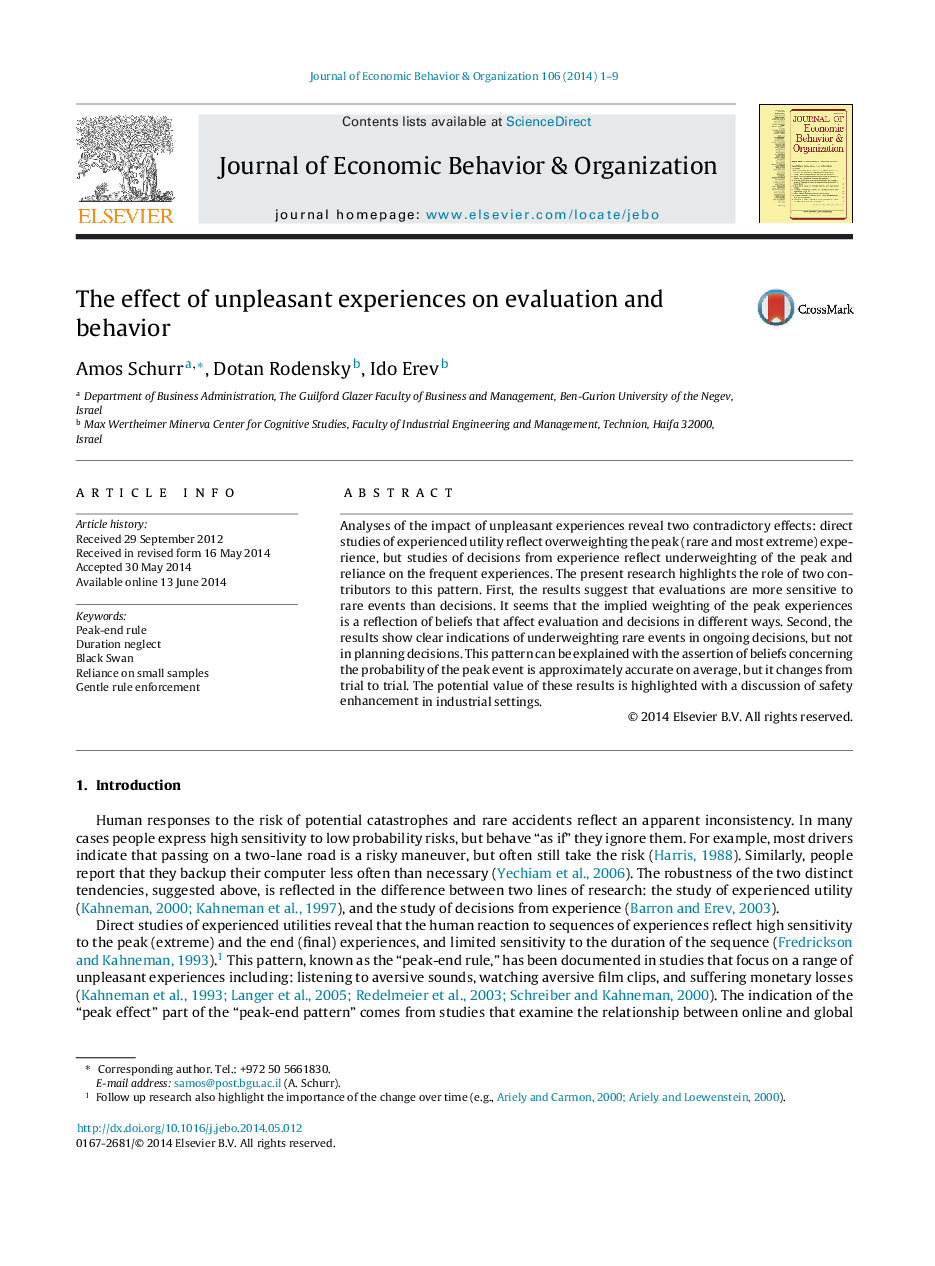| Article ID | Journal | Published Year | Pages | File Type |
|---|---|---|---|---|
| 7243439 | Journal of Economic Behavior & Organization | 2014 | 9 Pages |
Abstract
Analyses of the impact of unpleasant experiences reveal two contradictory effects: direct studies of experienced utility reflect overweighting the peak (rare and most extreme) experience, but studies of decisions from experience reflect underweighting of the peak and reliance on the frequent experiences. The present research highlights the role of two contributors to this pattern. First, the results suggest that evaluations are more sensitive to rare events than decisions. It seems that the implied weighting of the peak experiences is a reflection of beliefs that affect evaluation and decisions in different ways. Second, the results show clear indications of underweighting rare events in ongoing decisions, but not in planning decisions. This pattern can be explained with the assertion of beliefs concerning the probability of the peak event is approximately accurate on average, but it changes from trial to trial. The potential value of these results is highlighted with a discussion of safety enhancement in industrial settings.
Keywords
Related Topics
Social Sciences and Humanities
Economics, Econometrics and Finance
Economics and Econometrics
Authors
Amos Schurr, Dotan Rodensky, Ido Erev,
